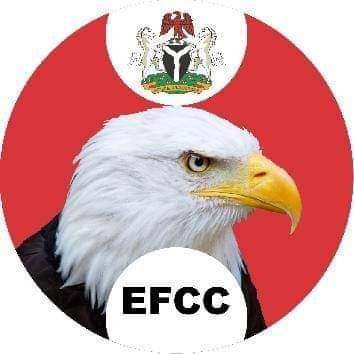Politics
Okowa Signs Five Bills Into Law

Delta State Governor, Senator Ifeanyi Okowa, has signed five bills into law, assuring that, the people would always get good governance.
The Governor, at the ceremony in Asaba assured: “we will collaborate with the Delta State House of Assembly to ensure that laws are passed to impact positively on the lives of our people.”
Bills which were signed into law are Delta State Investment Development Agency Bill 2016, Delta State Agency for the Control of HIV/Aids Bill 2016, Delta State College of Education, Mosogar Bill 2016, Delta State Agricultural and Rural Development Authority (Amendment Bill 2016) and the Delta State Hotel Occupancy, Restaurant and Department Stores Consumption Tax Bill 2017.
“I must truly appreciate Mr. Speaker and members of the House for being able to complete the process of passing the bills into law; there is no doubt that the Delta State Investment Development Agency Bill is something that will help to improve on the investment climate of the state and we need the growth of industries; this bill has helped to create an agency that will directly partner with would-be investors and to a very large extent will shorten the time required to process documents and have partnership that yield results between our state and investors,” Governor Okowa said.
He further explained, “with the bill on the Delta State Agency on the Control of HIV/AIDS, we have that agency already in place but, they can only become operational with the signing into law of this bill,” he said, adding, “the College of Education Bill, Mosogar was created on the fact that it was just a College of Physical Education, but, after the visit at their last convocation, at the request of the College and that of the community, we believe that it would be better if the College became a fully-fledged College of Education but, with specific attention to physical education and I am glad it has been passed into law which will enable the College admit students in the next academic session.”
“The Delta State Agricultural and Rural Development Authority amendment bill was to give strength to the operations of the agricultural extensions services because, if we are going to do well in the agricultural sector there is a need to strengthen the agricultural services in such a manner that our farmers are exposed to modern agricultural techniques which will improve on their farm skills and also, enable them have access to new techniques from our research teams,” he said.
He stated that “the Delta State Hotel Occupancy, Restaurant, Departmental Store Consumption Tax Bill is a bill that will help to generate revenue for the state and in partnership with various owners of restaurants, hotels, it is my belief that we will be able to generate revenue that will help improve on our economy, which will in turn impact positively on our people.”
Politics
Rivers Political Crisis: PANDEF Urges Restraint, Mutual Forbearance

Accordingg to the statement, the Board and National Executive Committee of PANDEF, noted with very grave concern the recent spate of political developments in Rivers State.
“Regrettably, these developments have now degenerated into the decision of the Rivers State House of Assembly to commence impeachment proceedings against the governor and deputy governor.
“This is a deeply disturbing situation that demands urgent attention in order to forestall further escalation and breakdown of law and order.
“This concern is heightened by the critical importance and strategic centrality of Rivers to the Niger Delta region and to the broader socio-political stability and economic wellbeing of Nigeria as a whole”, the statement said.
The Forum called on all parties involved in the resurgent political imbroglio to sheathe their swords and embrace peace.
“This should be guided by the principles of give-and-take, dialogue, tolerance, and political equanimity.
“All stakeholders must place paramount importance on peace, development and the welfare of the people of Rivers.
“We must now focus squarely on good governance and development of the state,” the Forum said.
PANDEF commended President Bola Tinubu, the leadership of the All Progressives Congress (APC), respected elders of Rivers State, and other well-meaning Nigerians for their previous and ongoing efforts aimed at restoring peace and stability in the state.
Politics
Wike’s LGAs Tour Violates Electoral Laws — Sara-Igbe

Speaking in an interview on Saturday, January 10, Chief Sara-Igbe alleged that the minister had flouted regulations governing the commencement of electioneering campaigns by moving from one local government area to another to galvanise political support.
According to him, the action amounted to a clear breach of electoral guidelines being carried out with a troubling sense of impunity that could undermine the rule of law.
“Wike has violated the electoral laws of campaigning by going from local government to local government to talk to the people. He travelled from one local government to another. As a result of his visits to local government areas, he has broken election regulations and continues to do all these things without fear of repercussions”, Chief Sara-Igbe said.
The remarks came as Chief Wike was set to round off a state-wide “thank-you” tour that covered all 23 local government areas of Rivers State.
Although the minister had described the tour as an appreciation visit following support for President Bola Tinubu in the 2023 general elections, critics say the engagements have assumed an overtly political character.
Observers note that during several stops, including recent visits to Andoni and Bonny local government areas, the minister rallied supporters across party lines under what he termed a “Rainbow Coalition,” a move widely interpreted as part of a broader political strategy.
During these engagements, Chief Wike was also reported to have made remarks perceived as a veiled challenge to the authority of Governor Siminalayi Fubara, while repeatedly referencing the 2027 elections and urging supporters to prepare to “correct the mistake” of 2023.
Chief Sara-Igbe warned that allowing such activities to continue unchecked could erode public confidence in Nigeria’s electoral process and called on relevant authorities to enforce existing laws without fear or favour.
Politics
EFCC Alleges Blackmail Plot By Opposition Politicians

The Commission, in a statement on Wednesday, claimed that there were plans by the same group to escalate a smear campaign against its Chairman, Ola Olukoyede, to frustrate ongoing investigations and prosecutions involving prominent individuals.
The statement endorsed by the agency’s spokesman, Mr Dele Oyewale, claimed that the action was intended to distract the Commission through unfounded allegations of political bias in the discharge of its duties.
The EFCC warned that it would not stand by and watch “those recruited into this ignoble enterprise” or allow any attempt to derail it from “the patriotic task of improving public accountability in Nigeria.”
The Commission made it clear that those recruited into this venture were under close watch, adding that it would not tolerate any attempt to distract it from the patriotic task of improving public accountability in Nigeria.
“The EFCC reiterates its non-political stance in all its activities. Facts on the ground clearly show that any political actor belonging to the ruling party or opposition party, with corruption baggage, has no hiding place from the operational radar and dynamics of the Commission.
“As a matter of fact, several strong members of the ruling and opposition parties are either facing trial before the courts or being investigated by the Commission.
“It is needful that Nigerians appreciate the fact that the Commission is keeping faith with its Establishment Act in all its operations.
“Therefore, the Commission reiterates its commitment to justice, without fear or favour, in the fulfilment of its mandate,” the statement pointed out.

